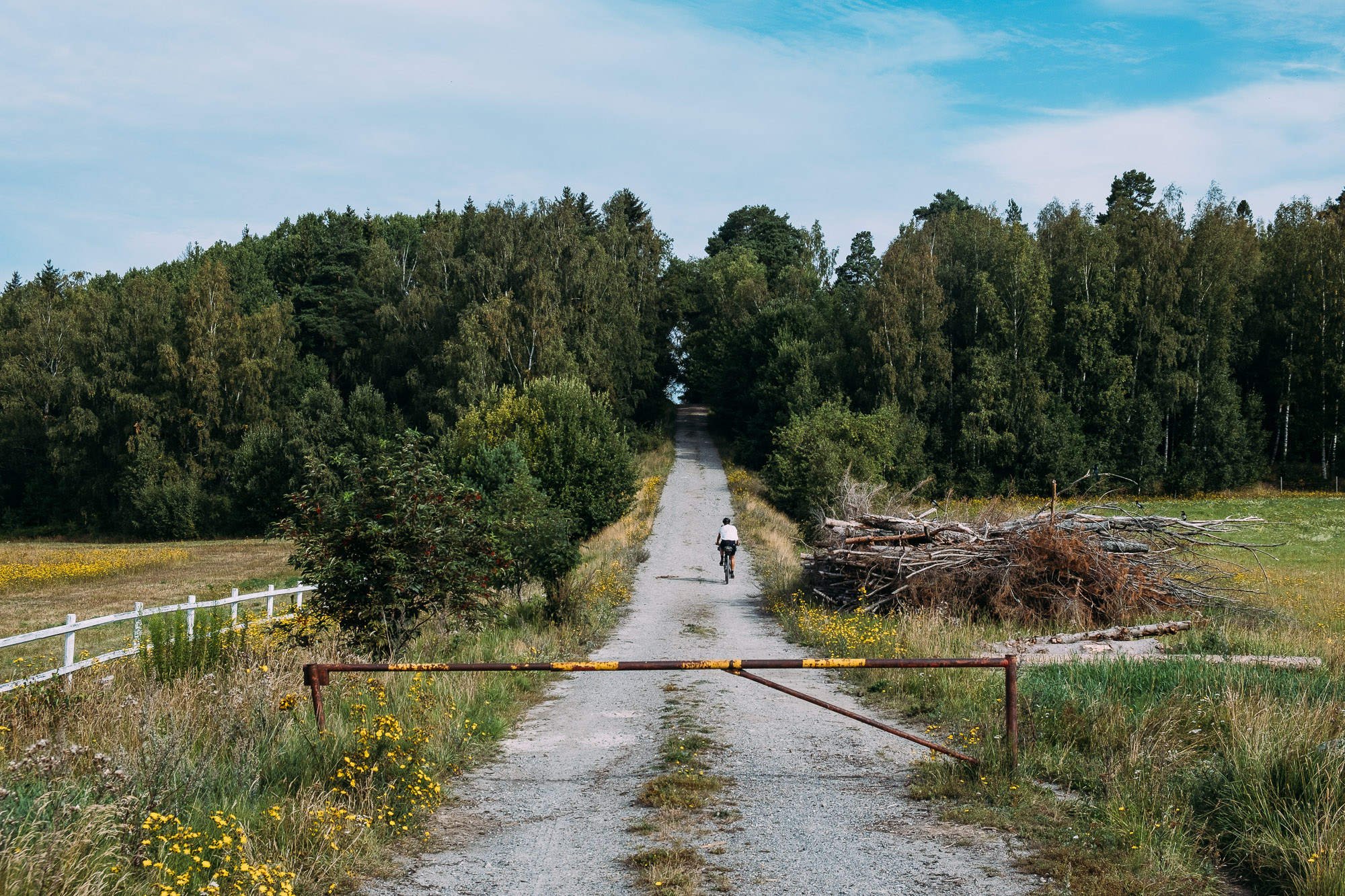Bikepacking offers us a unique chance to explore nature and to fully immerse in the great outdoors. Riding along gravel roads on a bicycle, packed with bags carrying your camping gear, creates a magical adventure experience.
Embarking on a bikepacking journey in an incredibly beautiful natural environment, brings the whole experience to another level. We’re fortunate enough to be based in forested and lakes-dotted Sweden. But besides dreamy gravel roads and stunning nature, Sweden has another major perk to offer as the ultimate bikepacking destination: ‘Allemansrätten’ or ‘Right of Public Access’.

Allemansrätten
The allemans-what? The Swedish word ‘allemansrätten’ translates into something like ‘everyman’s right’. It refers to the legal concept of the public’s right to access and enjoy nature. This means you can pretty much access all forests, fields and roads, for recreation, exercise, and other activities – within certain legal and ethical boundaries. So, Sweden’s nature is open to all thanks to the right of public access. This also means that you can stay in most natural areas without worry, even in privately-owned forests and lands. The key words “do not disturb, do not destroy” summarize the right of public access well.


The Swedish Right of Public Access is a fantastic principle. It allows for free roaming to hike, paddle a canoe, pick berries, camp almost wherever you want – and ride bicycles as well. Of course, it is important to show consideration for landowners, animals, nature, and other people. There are some limitations to the Right of Public Access, such as when you are in sensitive environments and close to private residences. But in the vast majority of places, you can stay freely in nature.

Allemansrätten rules & regulations for bikepacking
While allemansrätten grants broad access to Sweden’s outdoors, it’s essential to be aware of regulations and local rules. Especially if we’re talking about bikepacking and camping, because these may impact your bikepacking adventure. Some areas may have restrictions on camping, particularly in environmentally sensitive areas or during certain times of the year. And good news for the trail-loving bikepacker: there isn’t a universal prohibition on cycling on hiking trails. But since the trails are designed for hiking, remember that hikers and runners have the right of way.


A few more pointers to remember:
- It’s not permitted to cycle over plantings, gardens, forest plantations, and other sensitive areas, such as fields with growing crops.
- Avoid soft trails when the ground is wet, especially in spring and autumn. Treaded tires easily damage trails and delicate ground.
- Avoid cycling over sensitive ground types such as lichen-covered areas, rocky outcrops with mosses, soft meadows, and marshlands, to name a few examples.
- Adapt your riding style according to the terrain.
- In national parks and nature reserves, special rules may apply to cycling. It may be completely prohibited or only allowed on certain trails. On Sweden’s National Parks (https://www.sverigesnationalparker.se/en/), you can find out what applies to the specific national park.
- Riding e-bikes is not included in the allemansrätten. This means that currently, you’re not allowed to ride them on trails or freely in terrain without the landowner’s permission.

Allemansrätten in other countries
Please note that these rules only apply for Sweden. There are similar principles of the Swedish Right of Public Access in other places. As far as we know Finland, Norway, Iceland, Scotland and New Zealand have similar rules. But, they could differ somehow. In Norway, for example, you’re not allowed to pitch your tent within 150 meters of someone’s house. And when researching information for this blog, we read that you always need the permission of the landowner before lighting a campfire in Finland. So, if you’re setting out on a bikepacking adventure in one of these places, we’d recommend checking out the local regulations before freely roaming around and setting up the campfire.

Allemansrätten on private gravel roads
From all of the 300,000 kilometers of gravel roads, approximately 75,000 kilometers wind through private lands. They are often gated with barriers, but fortunately (in most instances) signs next to these gates indicate that access by foot and bike is perfectly permitted. In our three years of bikepacking in Sweden, encounters with local landowners have been positive – a simple greeting often is enough. Even during the rare situations when we’ve been stopped, a friendly conversation has always resolved any concerns. By spreading awareness, hopefully more people feel inspired to explore the outdoors and appreciate nature responsibly.


Personal experience with Allemansrätten
When going out exploring in Sweden, the allemansrätten feels like stepping into a world of wonder. It’s amazing how quickly we’ve got used to the freedom of it all. We rarely pause to consider its uniqueness on a global scale. The realization hits when we adventure elsewhere, encountering those annoying ‘no-entry’ signs. Yet, here in our own backyard, Sweden offers an expansive network of trails and roads to discover without worrying. So, dreamy gravel roads, stunning nature, and the right of public access. What a perk, right?
Follow all our adventures on Instagram and make sure to explore the related posts for more information!

Leave a Reply